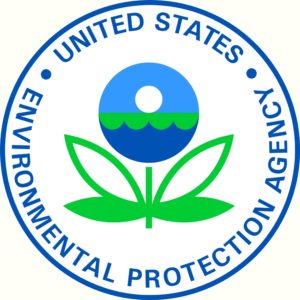A recent Cochrane review entitled “Antioxidant vitamin and mineral supplements for slowing the progression of age-related macular degeneration” provided a useful review of the science on the topic. But, like many studies that review or discuss the use of dietary supplements, the authors qualified the positive data with an often times used cliché suggesting there just “might” be …
Overstated Risk: Calls to Poison Control Centers
Dr. Rick Kingston shares this thoughts with Nutra Ingredients-USA on dietary supplement adverse events and the overstated risk of poison control center data.
A study that found a rising tide of reports to poison control centers about dietary supplement exposures reaches some faulty conclusions, say experts familiar with adverse event reporting.
Podcast: Potential Implications of FDA’s AER Database
As previously published and shared on Natural Products Insider.
In an effort to promote transparency, FDA improved access to adverse events reports (AERs) via an online database that provides a variety of information in a search-friendly format. Though the database is intended to be a tool, the type and breadth of information, along with how the information is presented, …
Legal Aspects of Adverse Event Reporting
By Rick Kingston, President, Regulatory and Scientific Affairs
In addition to contributing to product safety, adverse event monitoring and post market product surveillance help reduce liability and risk for manufacturers and other stakeholders. In legal liability cases, manufacturers are held to a relatively high standard of care. So, when a manufacturer has a product issue and gets sued, one of …
Mandatory Adverse Event Reporting: What You Need to Know
By Rick Kingston, President, Regulatory and Scientific Affairs
Most people are familiar with adverse event monitoring by the Food and Drug Administration (FDA), involving everything from dietary supplements to prescription drugs and medical devices. There are other agencies that require mandatory adverse event reporting, such as the Environmental Protection Agency (EPA) under the 6(a)(2) provision, and the Consumer Product …
Adverse Events 101
Rick Kingston, President, Regulatory and Scientific Affairs
If you’re wondering exactly what constitutes an adverse event (AE), you’ve come to the right place. In general terms, an adverse event is an experience associated with the use of a product that is or could be considered adverse or unwanted. They typically fall into three categories:
- Toxicology-related adverse events – When humans
FDA Now Making Data Available from CFSAN’s Adverse Event Reporting System (CAERS)
As part of the FDA’s commitment to transparency, for the first time it has begun posting data from CFSAN’s Adverse Event Reporting System (CAERS) on FDA.gov here and through OpenFDA. It’s downloadable in ASCII format, which is amenable to automated querying.
The database contains information on adverse event and product complaint reports submitted to the FDA for Center for Food …
Dr. Kingston Speaking at CSPA Annual Meeting
Dr. Rick Kingston will be speaking at the CSPA Annual Meeting in Ft. Lauderdale, FL. This year’s Annual Meeting will offer guidance on what new federal environmental legislation will mean for your company. Dr. Kingston’s presentation is on EPA Adverse Event Reporting: Past, Present and Future.
Fore more information about the Annual Meeting, head to the CSPA website.…
Dr. Kingston Speaking at CPSC From A-Z and Beyond
Dr. Rick Kingston will be speaking at the Consumer Product Safety Commission (CPSC) From A-Z… and Beyond, a full day conference in Washington, DC providing participants with a thorough understanding of the regulations administered by the US CPSC.
Dr. Kingston is speaking from 10:45-11:30 on Post-Market Surveillance. His presentation will cover:
- Data used by CPSC in regulatory process
- NEISS Data
Changes Coming to the EPA’s Adverse Event Reporting System
By Rick Kingston, President, Regulatory and Scientific Affairs
 It has been a number of years since there has been any change to the EPA’s adverse event reporting systems. The last major change came in with passage of the 6(a)(2) provision in 1997, which set forth requirements for reporting of adverse events involving EPA registered products. EPA subsequently put out PR …
It has been a number of years since there has been any change to the EPA’s adverse event reporting systems. The last major change came in with passage of the 6(a)(2) provision in 1997, which set forth requirements for reporting of adverse events involving EPA registered products. EPA subsequently put out PR …

